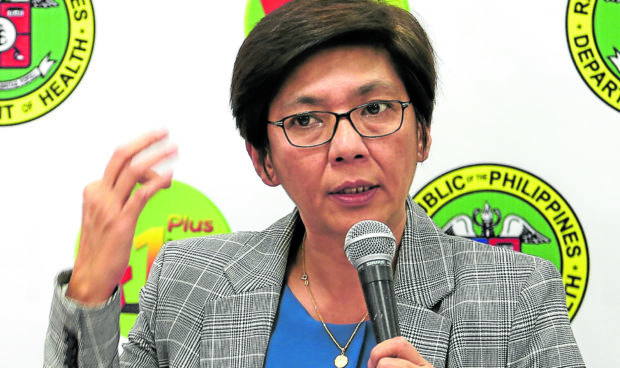MANILA, Philippines — The Department of Health (DOH) will conduct a study in a selected city to ascertain whether or not antigen tests can be used for border screening for the coronavirus disease 2019 (COVID-19), Health Undersecretary Maria Rosario Vergeire revealed during the DOH’s 2021 budget briefing before the House Appropriations Committee.
“There would be a pilot use or study that will be done specifically in one city here in the country where it is going to be tried for border screening but it is going to be used repeatedly of serially tested,” Vergeire said.
“Meaning once an individual goes in or through the border, he will be tested with rapid antigen. And then, three to five days after, they will be tested again to be sure you if they develop the disease or not,” she added.
The DOH, however, did not identify which specific city in the Philippines will serve as the site for the study.
The government earlier allowed the use of antigen tests as a substitute for the RT-PCR tests for asymptomatic local travellers.
The World Health Organization, however, said it is not advisable to use this test for border screening.
Vergeire said local experts found out that antigen tests cannot be used on asymptomatic individuals due to “variabilities” of the test’s sensitivity level.
She noted that the ideal sensitivity level of a rapid antigen test should reach 80%. However, rapid antigen tests available in the market do not reach this threshold.
“Antigen tests are accurate when you find a result which is positive, you do not need to confirm it with RT-PCR anymore but if the result is negative, we need to confirm with RT-PCR because as we’ve said the sensitivity is quite low,” Vergeire pointed out.
